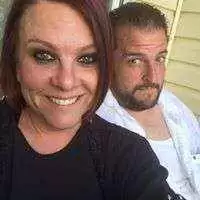-
Welcome to Celiac.com!
You have found your celiac tribe! Join us and ask questions in our forum, share your story, and connect with others.
-
Celiac.com Sponsor (A1):
Celiac.com Sponsor (A1-M):
-
Get Celiac.com Updates:Support Celiac.com!
Why Are Drs So Hesitant To Test?
-
Get Celiac.com Updates:Support Celiac.com:
-
Celiac.com Sponsor (A17):
Celiac.com Sponsor (A17):
Celiac.com Sponsors (A17-M):
-
Recent Activity
-
- plumbago replied to Katiec123's topic in Celiac Disease Pre-Diagnosis, Testing & Symptoms11
Finding out I’m coeliac whilst pregnant
If you tested positive for celiac on labwork, I would definitely give up gluten. -
- Tanner L posted a topic in Gluten-Free Foods, Products, Shopping & Medications0
Bad Reaction To Regular Ruffles Cheddar and Sour Cream
I have Celiac and had a bad reaction to the regular cheddar and sour cream Ruffles. The baked ones in this flavor are apparently marked gluten-free, but watch out for the regular ones. I wish I would have seen a post like mine, instead of one that was specifically referring to the baked chips from my google search, before I pulled the trigger. Hopefully... -
- Denise I posted a topic in Post Diagnosis, Recovery & Treatment of Celiac Disease0
Celiac Disease Dietician
I am trying to find a Celiac Dietician who works with the Celiac Disease Foundation. They don't have to be located in my area because I can do video visits. Can anyone help with this? -
- Nacina replied to Nacina's topic in Related Issues & Disorders3
14 year old with Celiac & EOE still suffering...
Well, that's a big question. When he was seeing the nutrition response testing dr. that changed each time we went in. He hasn't been seeing him regularly for theist ten months. When he had a horribly week in March I started him back on the 4 that were suggested to keep him on. Those are: Standard Process Chlorophyll Complex gluten-free, SP A-F Betafood gluten...
-




Recommended Posts
Archived
This topic is now archived and is closed to further replies.